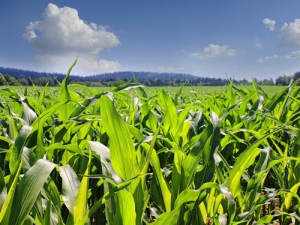MPI Hails Kiwifruit Boom as Horticulture Revenue Surges Past $9 Billion
Ministry for Primary Industries (MPI) Director General Ray Smith is giving a big shout-out to the horticulture sector, especially kiwifruit.
 Water from this project will most likely be used for wine grapes and arable crops, showing again that irrigation is about much more than just dairy.
Water from this project will most likely be used for wine grapes and arable crops, showing again that irrigation is about much more than just dairy.
Primary Industries Minister Nathan Guy has welcomed new funding of $895,000 for the Flaxbourne Community Irrigation Scheme in Marlborough.
The funding comes from the Ministry for Primary Industries' Irrigation Acceleration Fund (IAF) and will help the Marlborough District Council complete concept designs, finalise funding arrangements, and begin the detailed design phase for the storage dam.
"Water from this project will most likely be used for wine grapes and arable crops, showing again that irrigation is about much more than just dairy," says Guy.
"Providing a reliable water supply for growers has major potential to boost growth, creating jobs and exports. This is especially important in Marlborough given the serious drought the region has suffered over the last 18 months."
The Flaxbourne Community Irrigation Scheme proposes to source water from the Awatere River at peak times for storage and distribution that will irrigate 2200ha.
"We know that viticulture involves significant employment and investment of around $40,000 per hectare, and once established has significantly higher annual turnover than the current dryland pasture uses.
"This funding is another positive step forward for this scheme which has strong community support. The project has the potential to boost Marlborough's economy by $15 million per year."
A full economic assessment is part of the IAF work programme that will be delivered by end of July 2016.
The proposal has been previously investigated in different forms since 2008, and most recently in late 2014 received IAF funding of $50,000.
Newly released data from Environment Canterbury (ECan) Farm Environment Plan (FEP) audits are showing a dramatic lift in environmental performance across the region.
A solid recovery of global dairy prices this year makes a $9.50/kgMS milk price almost a shoo-in for this season.
As New Zealand marks the United Nations’ International Year of the Woman Farmer 2026 (IYWF 2026), industry leaders are challenging the misconception that women only support farming.
Fonterra’s impending exit from the Australian dairy industry is a major event but the story doesn’t change too much for farmers.
Expect greater collaboration between Massey University’s school of Agriculture and Environment and Ireland’s leading agriculture university, the University College of Dublin (UCD), in the future.
A partnership between Torere Macadamias Ltd and the Riddet Institute aims to unlock value from macadamia nuts while growing the next generation of Māori agribusiness researchers.

OPINION: Here w go: the election date is set for November 7 and the politicians are out of the gate…
OPINION: ECan data was released a few days ago showing Canterbury farmers have made “giant strides on environmental performance”.